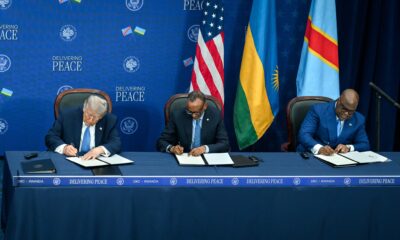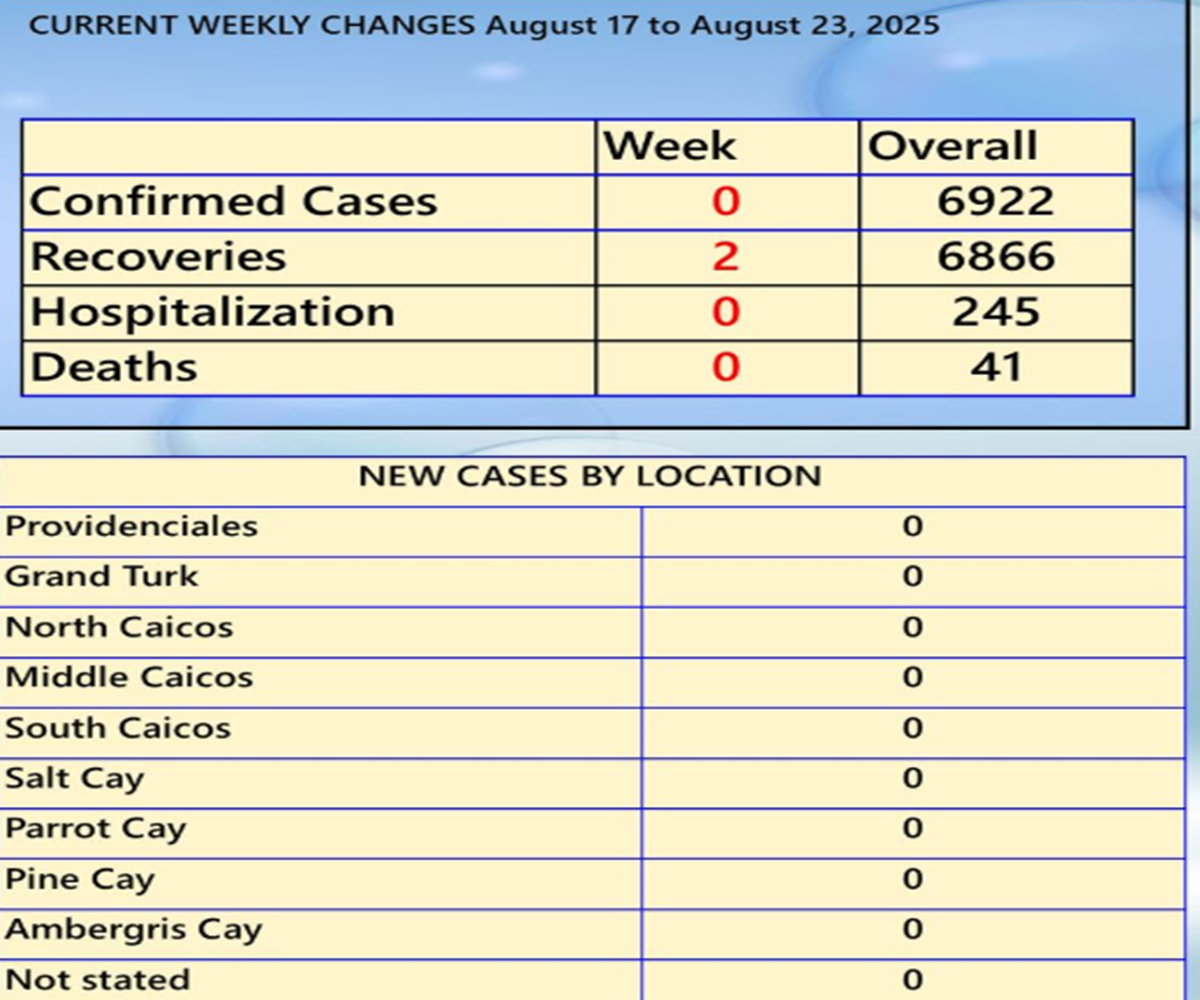By Deandrea Hamilton
Editor
#TurksandCaicos, December 31, 2021 – Most of the active Covid-19 cases recorded in December in the Turks and Caicos are tourists, who are also fully vaccinated; this means they are breakthrough infections. Still the Turks and Caicos Islands Government in its new raft of entry requirements has stopped short of ensuring everyone who enters or re-enters the territory is negative for the coronavirus, by exempting residents and citizens who are fully vaccinated from a process, it maintains keeps the nation safe.
“Remember though, the visitors are testing far more than we are, since for many a negative test or proof of recovery is a requirement for travel. It could be, that we are finding more in this group, only because we are looking more in this group. The truth is, it is difficult for us to know exactly what is happening within our residential population because we are not testing. So far, only 90 tests have been conducted in December through the community outreach programme.
Testing as many people as possible is another strategy we can use in the fight against Covid-19,” said the Dr. Shandey Malcolm, National Epidemiologist during a national health update on Thursday December 30.
Though government states testing is a strategy, the need for it excludes the returning resident who is vaccinated; begging the question why is this demographic omitted from the essential screening.
The Premier, when he addressed the nation in the health update explained that vaccinated residents, because they have taken the vaccine, get preferential treatment which allows them to return home positive for COVID or not.
Jamell Robinson, TCI’s Health Minister said government is still weighing the benefit and risk of not testing all returning residents.
“We’re monitoring, watch the numbers, watch the hospitalisations, see how things are going, seeing how our resources are being deployed… we’ve decided at this point, December 30th that that’s not the route we are going at this point. But if we deem it is absolutely necessary to make that call, we will. But again, we are still doing some more research, and getting some more data to back up how much more we’re going to benefit from going that route.”
What is clear is the dwindled efficacy of vaccines caused by both the Delta and Omicron strains of the Coronavirus has increasingly materialized breakthrough infections, which has resulted in countries around the world requiring full vaccination or quality testing and upon entry or re-entry.
As it stands now, guests who test positive for Covid-19 must remain in Turks and Caicos until they can prove full recovery from the coronavirus.
According to Dr. Malcolm, 63 per cent of the 184 cases recorded up to December 30th in the Turks and Caicos were among vaccinated guests to the country. The positives for Covid-19 were picked up when the visitors were taking Rapid Antigen Tests, a mandatory requirement for re-entry to their homeland.
However, Turks and Caicos is headed into a fourth month where vaccinated residents of the islands do not have to test prior to returning home, even though the likelihood of exposure is high.
On December 24th, 41 new Covid-19 cases were detected in Turks and Caicos, highest figure in 10-months. At this time, the National Public Health Laboratory is functioning at a significantly slower pace due to equipment failure, said a Ministry of Health notice.
Record setting numbers are also charted in the United States, Canada and the United Kingdom; popular haunts for Turks and Caicos Islanders. The new rule, announced by Minister Robinson tightens measures for Tourists and Non-Vaccinated residents only. It requires a negative test result for everyone travelling who is two years old and over. The regulation takes effect January 14, 2022.
This altered travel entry requirement increases the cost and stress of travel for those who fall into the category, because more tests will be required per group. The PCR test is also more expensive and has a longer processing period. The change also comes at a time when there is increased pressure on testing centers in source tourism markets, with the “tsunami” of infections due to the Omicron variant of the disease.
The rule has no impact on the vaccinated citizen or resident however, who despite having had to test in order to exit the TCI into hotspot cities and countries which are overrun with the Omicron and Delta variants, can come home infected or not, because no one would know, especially if they are asymptomatic.
“You will notice subliminally that those persons who have not been vaccinated, Turks and Caicos Islanders who go abroad will be required a test before they come back home. If you are vaccinated and ‘boosterised’ you will not be prepared to take that test. For those persons who are not vaccinated, you are still required to be quarantined for fourteen days,” said the Premier who pointed to the rewards for being vaccinated and the penalties or stiffer regulations which kick in, once you’re not.
“People who have followed the protocol and who have been vaccinated, who’ve responded to the appeal to be vaccinated we don’t want to put additional burden on them, inconvenience them, and cause them money in the likelihood they may be positive then it’s a tremendous level of expense for them to have to be quarantined or remain in a foreign country.”
This scenario is sympathetic only to the vaccinated resident and desserts the unvaccinated resident and citizen, because they have opted not to be vaccinated for the coronavirus.
The rule also makes Turks and Caicos Islands, one of the only places in the world where a negative for COVID is not required from everyone entering the borders and so far, the TCI Government is okay with this blazing disparity of rules, which is a significant danger to public health.
A change in the inequitable rule is not off the table. But the Government is taking a gamble with public health and admittedly feels a need to reward those who have taken the vaccine and penalize or alienate those who have not.


 USA15 hours ago
USA15 hours ago
 Health1 day ago
Health1 day ago
 TCI News24 hours ago
TCI News24 hours ago
 TCI News1 day ago
TCI News1 day ago














